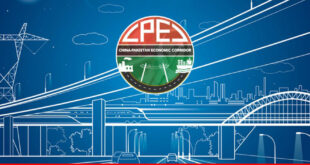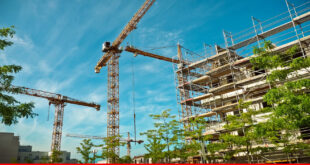New energy and infrastructure projects in the pipeline
The socio-economic and political stability of a country is deeply linked with the strong and stable leadership. If the leaders and their vision is strong and linked with the good or bad of the people, no matter what ever the situation the things are sure to take a shape sooner or later.
Pakistan despite having enormous energy resources and a strong agriculture base is unfortunately ranking amongst the energy deficient countries having a weak and indebted economy, which endorse the fact that the governments in the past neither had a will nor vision to exploit the available opportunities.
As far as indigenous resources are concerned, Pakistan used to be called rich in gas with huge reservoirs, plenty of hydro power resources, un-scaleable wind power in Sindh and Balochistan, huge solar resources as well as having a tag of a nuclear power as well. Yet the 180 million plus population has been thrown into a situation where it is experiencing gas rationing, power load shedding of long durations and spending over $16 billion on imports of costly oil, which is beyond the affordability of the masses with meager earning resources.
However, the situation seems to have taken a turn towards affordable and viable power generation by using much cheaper coal for which the present government has taken various initiatives and hopefully the inflation-hit nation driven by costly imports of oil may take a sigh of relief when the cost of power generation comes down with the use of coal as an affordable fuel.
Prime Minister Nawaz Sharif who has taken aggressive and positive policy initiatives of converting at least 50 percent of the power generation to coal fired power certainly deserves appreciation.
Commenting on the situation, Capt. Haleem Siddiqui, Chairman Marine Group of Companies said in an interview that coal is going to be a game changer in the entire energy scenario in a couple of years when the upcoming coal-based projects become operational in the country.
Taking lead from the government policies and realizing the future energy needs of the country, Capt Haleem Siddiqui who has the privilege of developing Pakistan International Container Terminal, which is second none in providing port facilities, has decided to set up country’s first Dirty Cargo Terminal at Port Qasim with a design to exclusively handle coal imports with internationally acknowledged mechanized standards ‘ a bulk terminal of its own kind for the first time in Pakistan.
This unique terminal, which is delayed due to internal rift between local and Turkish contractors delayed unnecessarily, however, it will be completed by the end of 2015. “Actually it is a huge project with a 2.5 kilometer track from terminal into sea, which is a time consuming development, now we have invited tenders from international players because in Pakistan there are no contractors have experience of marine development work, so we are considering four of the international contractors of which two are Korean firms one is Chinese i.e. China Harbor we are in process of evaluating their bids and within 15-20 days the contract will be awarded,” said Capt Haleem Siddiqui. The delay has caused cost escalation from earlier estimated cost of $185 million to $250 million. It will play an important role in economic development especially for those industries shifting on coal.
He said initially its capacity was 4 million tonnes in the first phase, while in phase two the capacity was 8 million tonnes, but now looking at the demand growth and government policies we have expanded the project and now we have redesigned its capacity and the phase one will have a capacity of 12 million tonnes with an overall expansion to 20 million tonnes of dirty cargo specially coal cargo. Since power plants also take a couple of years to complete and by that time the terminal will also be operational to coincide with the government plans of shifting power generation from oil to coal.
He said the economic activities cannot take place without developing infrastructure facilities including sea, railways, roads and air, the cheapest mode of transportation is sea because it takes volumes of cargo transportation, then comes railways, road and the air respectively.
As far as port handling is concerned, Pakistan has a strong port handling base, which contributing significantly in economic development of the country. “Look at the infrastructure development in Turkey which second to none to any European country. It was because of its infrastructure development that Turkish economy has multiplied with the last 10-15 years and resultantly brought prosperity to their people,” said Capt Haleem Siddique. Recalling the days when the Turkish lira was no where against dollar. The parity of lira-dollar was in hundreds of lira against a dollar, but now Turkish lira is almost at par with dollar with a small difference. How they managed an economic turnaround? He said in a firm tone that unless the infrastructure is not improved the economic situation will also not improve to the desired level.
He cited another example of economic development of China where economy started booming after development of their infrastructure. Any body who had visited China some two decades back will not be able to recognize that it is the same China he had seen earlier. It is a different story today only because of their infrastructure, which played the primary role in robust economic growth of China. Their roads, bridges, trains and ports construction are unbelievable.
He recalled that only a decade back Pakistan’s total exports never exceeded to $10 billion because ports have no capacity to handle cargoes properly. Now with the investment of over $2 billion from the private sector, ports handling operations are matching to any international standards today. Our exports have exceeded to $26 billion mainly because of private sector investment in port handling facilities.
Now the situation calls for a focus on to feed the ports through development of infrastructure facilities to bring and take out the cargo from industries to port and from port to industries all over the country.
The present government led by Prime Minister Nawaz Sharif has a focus on road developments once the road network is on, you will see the change on the economic scene.
Mian Nawaz Sharif has the credit of developing Lahore-Islamabad and Islamabad-Peshawar Motorways, now the only missing link is between Karachi to Lahore, if the proposed motorway between Lahore and Karachi is completed and other road network are linked together to provide facility from farm-to-market and from factory-to-ports it will add a spark to the economy within no time, as more than fifty percent of growth will come easily to the market. Today due to lack of road infrastructure a huge quantity of agriculture produce or farm produce goes into waste.
 PAGE Blog Business Weekly Magazine
PAGE Blog Business Weekly Magazine

